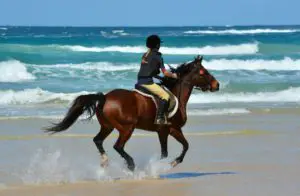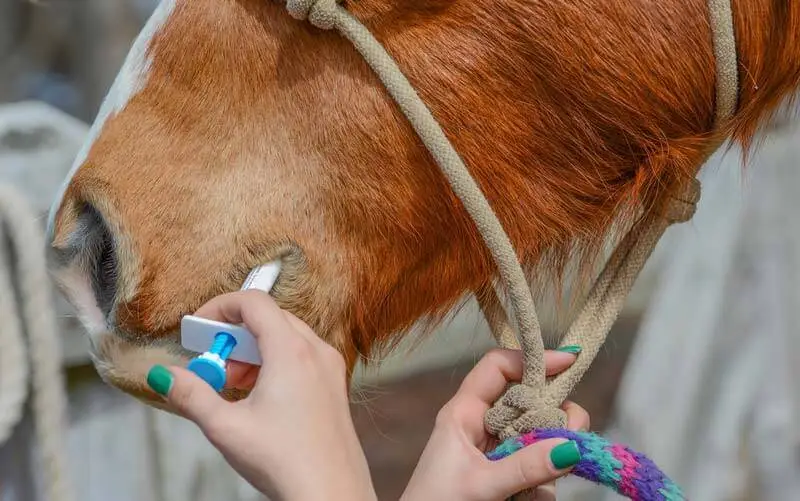5 Common Horse Health Problems During Summer
With hotter temperatures and seasonal changes, Summer can be harsh on our horses. There are many health problems that can arise and, in this article, we share five of the most common, plus how they can be avoided.
1 Dehydration
A consequence of fluid loss, dehydration can affect your horse year-round, but remains more prevalent during Summer. To avoid dehydration, ensure your horse has unlimited access to fresh, clean water, including before and after exercise, and when travelling.
Dehydration can lead to tying up and impaction colic. A severely dehydrated horse will be lethargic, with dry, tacky mucous membranes and sunken eyes. If dehydration gets to this point, call your veterinarian immediately. Learn how to spot dehydration early by clicking here.
2 Insect hypersensitivity
Also called sweet itch or Queensland itch, this allergic reaction is caused by the saliva of biting midges, with the reaction most common on the belly, root of the mane, base of the tail and face. Causing itchiness, which leads to intense rubbing, your horse can damage their skin.
To protect against flies and insects, you may consider using a light fly sheet and fly mask, along with insect repellent. Be sure to check your horse regularly under their rug and fly mask to ensure they remain comfortable throughout the day.
3 Heat stress
With a body that holds heat more efficiently than it disperses it, horses can acquire dangerously high body temperatures during Summer. A heat stressed horse will sweat profusely and, in extreme cases, they may stop sweating altogether.
Heat stress can also be recognised by panting, a dull demeanour or panicky behaviour. If your horse is heat stressed, cold water hose them, scrape it off and repeat. Keep them in the shade and offer them water. You may also use ice packs on their face and neck.
With no proven cure, horses with anhidrosis – the inability to sweat – must be managed carefully during Summer. An anhidrotic horse will be unable to cool themselves and may show signs of heat stress, such as those described above.
You may identify anhidrosis in your horse if they are dry when other horses are sweating or the temperature or level of activity would normally produce sweating. Horses with anhidrosis should be kept in a cooler environment and may require more stringent cooling methods during Summer.
4 Sunburn
Many white and grey horses can be affected the sun. Just like in humans, sunburnt skin will be red, tender and swollen. If the sunburn is severe, the skin may also crack, bleed or ooze fluid. Where possible, sunburn is best avoided.
Shield your horse’s skin from overexposure with a light rug and fly mask. Be mindful of vulnerable areas, like the muzzle, and use zinc if you don’t have a nose flap to cover it. If your horse is sunburnt, apply a thick emollient cream to the area.
5 Colic
There are many causes of colic and the main ones in the summer months are due to the introduction of different feeds or hays and the amount of fast growing grasses after rain. This causes the bacteria in the intestinal system to have a field day and produce more gas after breaking down different feeds. This gas often builds up and is not released fast enough. When the intestines stretch, pain receptors are activated causing the common signs of colic like pouring at the ground, rolling and laying down etc.
If you suspect your horse has colic call your local Equine Veterinarian for advice as soon as you notice signs.




